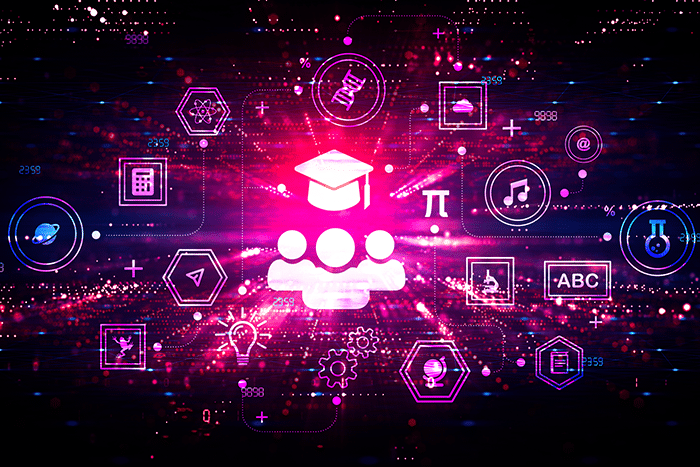
Multi-Faceted Support
To start, teaching is more than the simple transfer of information from the “expert” teacher to the student! Teachers provide support to students in many different ways, including as mentors, role models, and guides through critical educational and social/emotional development milestones. The role of the teacher includes being a motivator and someone who provides support tailored to each specific student’s individual needs. These characteristically “human” skills will not likely be replaced with programming. These skills require, by their very nature, the ability to empathize with the subject being taught. In short, a computer program cannot replace the human connections that teachers inherently have with their students. These connections are critical to building trust and fostering a safe and comfortable learning environment for each individual student.
The Uniqueness of Every Student
Teaching students, especially students at lower grade levels or students with unique needs, is not a one-size-fits-all task. All students come to the table with unique challenges, preferences, and learning styles. With this diversity of learners, each student requires specific instructional strategies as they progress through often challenging content. Unlike programs, teachers are trained to wholistically apply both their content area knowledge and their understanding of human nature to help identify learning gaps and creatively develop a plan of action. These strategies can range from holistic lesson planning to moment-by-moment tactics to adjust to each student’s needs. AI software does not possess the ability to understand each student and then adjust to each learner’s needs like a trained teacher can. While technology can often assist teachers, it will always fall to the judgment of a trained teacher to support any student individually.
In addition, the human interaction of a teacher can never be replaced when it comes to judging a student’s level of understanding. Only with careful evaluation through the lens of an empathetic trained educator (paired with quantitative and qualitative assessments), can the true nature of a student’s level of understanding be understood. Unlike teachers, AI is designed to follow a specific set of rules or algorithms to evaluate or present information. While this rigid structure may work for lower-level cognitive skills, it will not be able to properly inform or evaluate complex or higher-level tasks or adjust to the needs of learners with differing abilities. An AI system will also never be able to take into account more human elements that drive human motivation or need, such as emotional state, socio-economic needs, temperament, grit, attitude, etc. Only a trained teacher can adjust to these differing needs.
Emotional Support and Understanding
Thinking back to any great teacher you may have had when you were a student. Do you remember that teacher simply based on the topics or information they presented to you? Or do you remember that great teacher because of their impact on your life? More likely than not, you remember that teacher as a role model, a mentor, or a source of comfort and strength. These qualities are what make a student learn and grow as a person both in knowledge as well as character, and these qualities can never be replaced by AI!
Human teachers can help teach students how to communicate more effectively with them as well as their peers. Teachers can help students understand their own needs and struggles as well as how to manage their anger, frustration, or fatigue when dealing with difficult academic subjects. AI, while being great at presenting information, can never impart or support a student the way an empathetic teacher can. By providing this human level of support and training, students will be able to navigate the challenges often faced while learning, as well as help them to build character and important life skills.
Collaboration, Teamwork, and Continuous Improvement
While the latest AI program may have the ability to access the entire knowledge-base of the internet and continually improve in sophistication, so do teachers and the field of teaching in general. Teachers continually improve throughout their careers. Not only by advancing their skill set through professional development and by following research on new teaching innovations but also by continually learning and understanding their students and the culture of their campus. Teachers have the ability to collaborate with other teachers and administrators, share ideas and lesson plans, and engage in self-reflection and continual improvement. When a student disengages with an AI program, that program is no longer tasked with helping that student. Teachers, however, actually care about their students! They will think about an interaction with a particular student while at lunch, while speaking with a colleague, or even at home. Teachers will continually “get to know” their students as they progress throughout the school year and devise strategies they know, through experience, their students need to advance their learning. This level of engagement and consistent focus can never be replaced with software.
Overall, while AI has a remarkable ability to supplement K-12 education, it will never be able to replace great teachers! Through the ability to adapt to every student, understand learning gaps, collaborate, and provide empathetic support during a student’s learning journey, teachers will always be needed. So teachers, keep learning and growing, and keep doing what you do- because this generation and the next will be depending on you!






